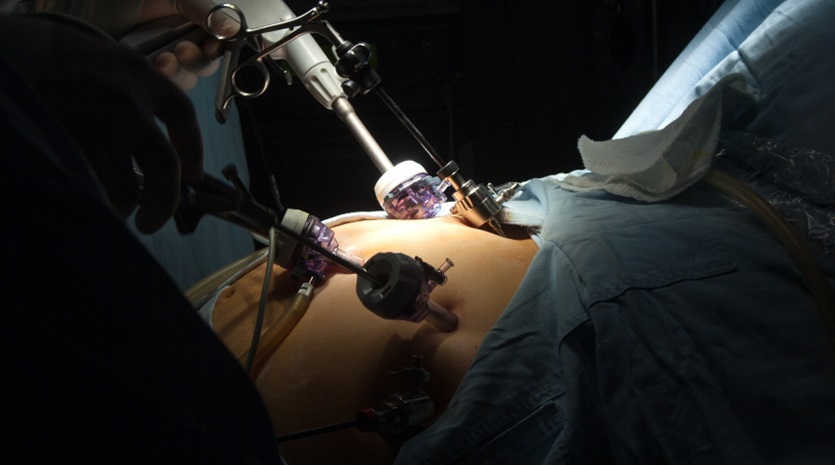How to Choose the Right Bariatric Procedure for You: Gastric Sleeve Explained
For those exploring weight loss surgery options, the gastric sleeve in Maryland can be an effective solution, offering significant benefits for those who qualify. Gastric sleeve surgery, formally known as sleeve gastrectomy, is a popular bariatric procedure due to its effectiveness in promoting weight loss and its lower risk profile compared to other surgeries. Choosing the right bariatric procedure is a major decision that requires careful evaluation of personal health, weight loss goals, and medical history. This guide breaks down what makes gastric sleeve surgery unique and how to determine if it’s the right choice for you.
Understanding Gastric Sleeve Surgery
Gastric sleeve surgery is a laparoscopic procedure that reduces the stomach’s size, limiting food intake and appetite. During the surgery, a large portion of the stomach is removed, leaving a narrow tube or “sleeve.” This smaller stomach capacity allows for portion control and a reduced desire for food, as it significantly lowers the production of the hunger hormone ghrelin. This approach is effective for those looking to lose a significant amount of weight but wanting a less invasive option than some other bariatric surgeries.
Benefits of Gastric Sleeve Surgery
Choosing gastric sleeve surgery offers several potential benefits for those seeking weight loss support:
- Simplicity and Safety: The gastric sleeve is less complex than other procedures, like gastric bypass, and generally has fewer complications and risks.
- Appetite Control: By removing the part of the stomach responsible for hormone production, patients often experience a reduced appetite.
- Long-Term Weight Loss: Many patients report sustainable weight loss results, with studies indicating that individuals can lose 50-70% of their excess weight within the first year post-surgery.
For more detailed information on these advantages, this article provides insights into how this procedure may help you achieve long-term health goals.
Who is a Candidate for Gastric Sleeve Surgery?
Not everyone is a suitable candidate for the gastric sleeve procedure. Generally, bariatric surgery candidates have a BMI of 40 or higher or a BMI of 35 with obesity-related health conditions like type 2 diabetes or hypertension. Potential candidates should also be prepared to make significant lifestyle changes, including diet and exercise, to support their weight loss journey.
A consultation with a bariatric surgeon is critical in determining eligibility for the gastric sleeve procedure, especially for those in Maryland considering local options. Choosing the right gastric sleeve surgeon is crucial, as an experienced surgeon will evaluate your health comprehensively and recommend the most effective approach.
Gastric Sleeve Surgery vs. Other Bariatric Options
Deciding on the best weight loss procedure requires understanding how the gastric sleeve compares with other bariatric options. Here are some common alternatives and their distinctions:
- Gastric Bypass: Unlike the gastric sleeve, this procedure involves rerouting the small intestine to a new stomach pouch, which requires more anatomical changes and can lead to malabsorption issues.
- Adjustable Gastric Banding: Commonly known as the lap band, this procedure involves placing a band around the upper stomach. Though less invasive, it often results in less substantial weight loss and may require follow-up adjustments.
- Biliopancreatic Diversion with Duodenal Switch (BPD/DS): This complex surgery provides significant weight loss results but is associated with a higher risk of nutritional deficiencies, making it suitable only for specific cases.
Gastric sleeve surgery offers a middle ground, balancing effectiveness with a lower risk of complications, making it a preferred choice for many patients.
Why Gastric Sleeve Might Be Right for You?
If you seek an option with manageable lifestyle changes, minimal long-term nutritional supplementation, and a reduced risk of complications, the gastric sleeve may align well with your needs. Consulting with a local specialist can also give you insight into post-surgery support available in your area.
Preparing for Gastric Sleeve Surgery
Once you’ve determined that the gastric sleeve is the right path, preparation is key to a successful surgery and recovery. Here are some steps to help ensure a smooth experience:
- Medical and Nutritional Evaluations: Comprehensive evaluations ensure your body is ready for the procedure.
- Pre-Surgery Diet: Patients are often advised to follow a low-calorie diet for several weeks before surgery to reduce liver size, which can make the surgery safer.
- Mental Preparation and Lifestyle Changes: The mental aspects of weight loss surgery are significant, as the procedure requires a long-term commitment to healthier habits.
Working with a dedicated weight loss team will ensure you receive the guidance and support you need for the best possible outcome.
Conclusion
Selecting the right bariatric procedure is a critical step toward achieving a healthier lifestyle. With benefits like reduced appetite, sustainable weight loss, and fewer complications, the gastric sleeve is an appealing choice for many seeking weight management assistance. By consulting with a qualified surgeon and evaluating your personal health goals, you can make an informed decision about the gastric sleeve and take a significant step toward a healthier future.




